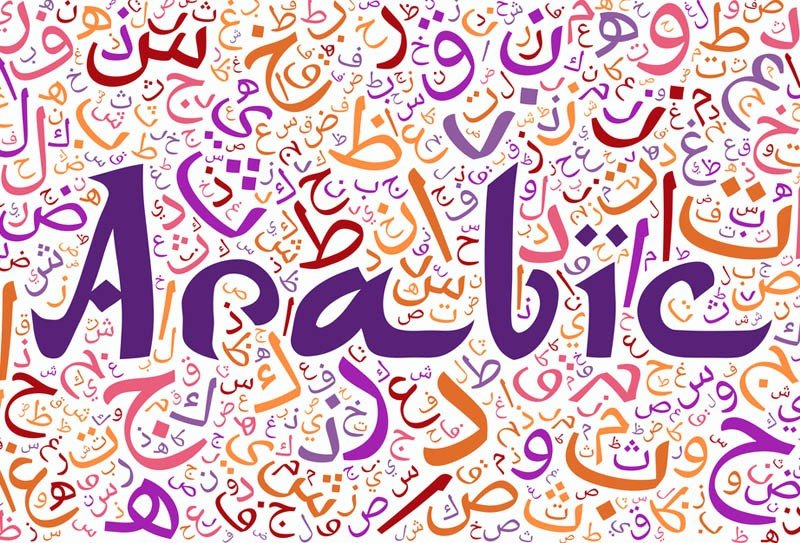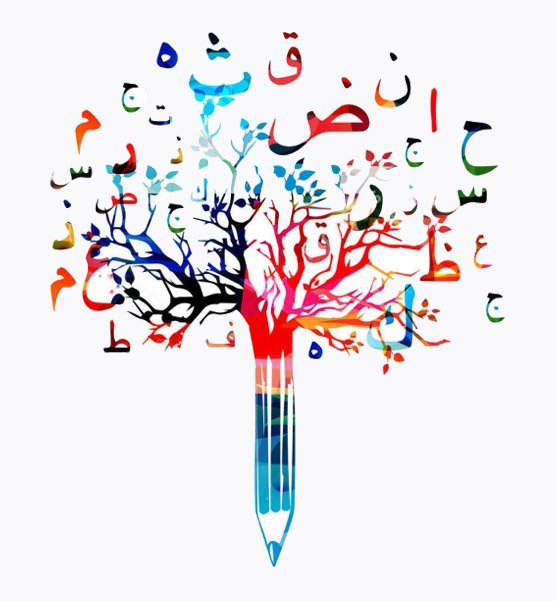Languages We Provide Service
Arabic
Arabic Translation and its Importance in Turkey

Arabic Translation and its Importance in Turkey
Arabic is one of the most widely spoken languages in the world and is recognized as an official language, especially in the Middle East, North Africa and Gulf countries. As Turkey has strong cultural, economic and political ties with these geographical regions, Arabic translation services are of great importance here. Translation in Arabic requires not only grammar and an understanding of the structural features of the language, but also an in-depth knowledge of the cultural context.
This article will address the challenges of the Arabic translation process, key considerations, and the fields where Arabic translation is commonly used in Turkey.

The Global Power of the Arabic Language
Arabic is spoken by approximately 300 million people worldwide and is one of the official languages of the United Nations. The increasing role of the Arab world in the global economy has made Arabic a strategic language. Its influence is particularly significant in the energy, trade, finance, and media sectors. To remain competitive in the global market and establish effective communication with the Arab world, the demand for Arabic translation services is steadily growing.
Challenges and Considerations in Arabic Translation
Arabic translation presents several challenges. The unique grammar structure, vocabulary, and dialectal diversity of the language make accurate translation difficult. Dialects in Arabic can vary significantly by region; for instance, there are notable differences between Egyptian Arabic and Gulf Arabic. Therefore, translators need to be proficient in both Modern Standard Arabic and specific dialects. Additionally, Arabic texts are written from right to left, which complicates the layout and formatting of written content. Another crucial aspect to consider is cultural alignment. Arab culture plays a significant role in language use, and accurately translating these cultural elements is essential for effective communication. For instance, religious references, social norms, and traditions must be conveyed correctly in translation.
Elements Enhancing Quality in Arabic Translation
To enhance the quality of Arabic translation, several key elements should be considered:

Native Proficiency
The translator must be proficient in both Arabic and the target language at a native level. This ensures the accurate reflection of the subtleties and nuances of the language.

Native Proficiency
The translator must be proficient in both Arabic and the target language at a native level. This ensures the accurate reflection of the subtleties and nuances of the language.

Cultural Knowledge
A proper understanding of cultural context and its integration into the translation enhances communication accuracy. A translator’s deep knowledge of Arab culture ensures that the message is conveyed correctly.

Cultural Knowledge
A proper understanding of cultural context and its integration into the translation enhances communication accuracy. A translator’s deep knowledge of Arab culture ensures that the message is conveyed correctly.

Field Expertise
Translation of legal, medical, technical, or literary texts requires expertise. Translators must have knowledge of the subject matter to ensure accurate and consistent translation.

Field Expertise
Translation of legal, medical, technical, or literary texts requires expertise. Translators must have knowledge of the subject matter to ensure accurate and consistent translation.

Detailed Revision
A meticulous review of the translation, both in terms of grammar and meaning, ensures that errors are minimized. This is an important step in improving the quality of the translation.

Detailed Revision
A meticulous review of the translation, both in terms of grammar and meaning, ensures that errors are minimized. This is an important step in improving the quality of the translation.

Use of Modern Technology
Technological innovations such as CAT (Computer-Assisted Translation) tools and terminology management systems enhance translation quality.

Use of Modern Technology
Technological innovations such as CAT (Computer-Assisted Translation) tools and terminology management systems enhance translation quality.
Fields Where Arabic Translation is Commonly Used in Turkey
Arabic translation is widely used across various sectors in Turkey. Here are some of these areas:
Education
When Arab students apply to universities in Turkey, the translation of their academic documents and acceptance letters into Arabic is required.
Tourism and Travel
Turkey is a popular destination for tourists from the Arab world. Hotels, travel agencies, and tour guides frequently use Arabic translation services.
Trade and Investment
Turkey has strong commercial ties with the Middle East and Gulf countries. The translation of business agreements, commercial documents, and contracts into Arabic is crucial in this sector.
Health Tourism
With the increase in real estate investments by Arab investors in Turkey, there is a need for translation of property deeds, sales contracts, and other real estate documents.
Health Tourism
Patients from Arab countries benefit from health services in Turkey. Medical reports, treatment plans, and hospital documents require translation into Arabic.

Documents Requiring Arabic Translation in Turkey
In Turkey, the range of documents that require Arabic translation spans various sectors and needs:
1.Passports and Visa Documents
Arabic translation is needed for passports and visa documents for travel and immigration purposes.
2.Educational Documents
Diplomas, transcripts, reference letters, and acceptance documents require Arabic translation services.
3.Real Estate Documents
Sales contracts, title deeds and lease agreements are some of the documents translated into Arabic.
4.Commercial Documents
Business agreements, commercial contracts, import and export documents, and other commercial paperwork are translated into Arabic.
5.Health Reports
Medical reports, prescription medications, and treatment plans need to be translated into Arabic.
6.Court Decisions and Legal Documents
Legal proceedings require the translation of court decisions, power of attorney, and other legal documents into Arabic.
The Role of Nibras Translation in Arabic Translation
Arabic translation is a significant need across various sectors and fields in Turkey. The strength of Arabic in global communication and international relations necessitates accurate and high-quality translations in this language. Nibras Translation plays a leading role in meeting Turkey’s Arabic translation needs by offering professional services that provide high-quality translation solutions. Additionally, Nibras Translation employs native Arabic-speaking experts who accurately translate the subtleties and cultural nuances of the language. This ensures that we consistently deliver the most reliable and precise translation services to our clients.
